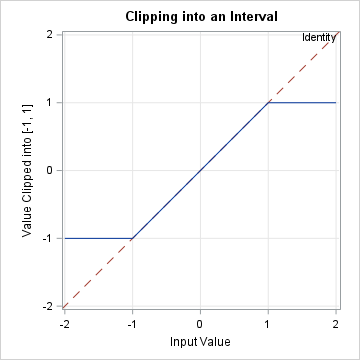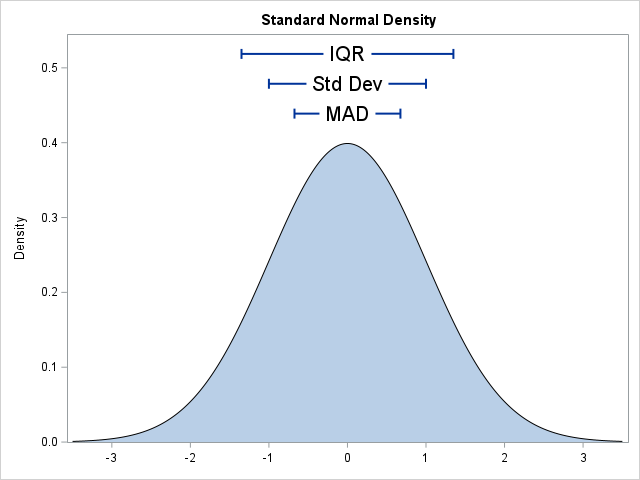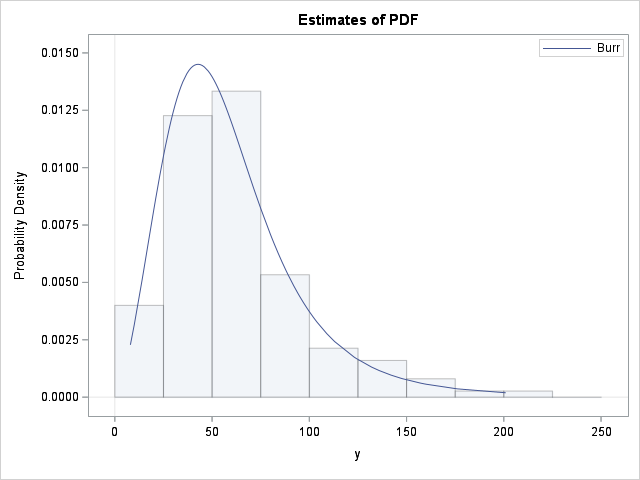Even though I’ve worked as software technology marketer over the years, I have to admit that on a personal level I’ve probably related more to TV programming than software programming. When it comes to writing, I’ve always gravitated more toward crafting marketing communications than code. And when it comes to learning new languages, la langue de la France has always been my favorite. In reality, I’ve always been a bit intimidated by the programming field, so I’ve shied away.
But, recently, things have changed. Over the past few years, while working in the SAS Education division, I’ve had the opportunity to get close to the SAS programming language. I’ve taken the SAS® Enterprise Guide® 1: Querying and Reporting course and often use the tool to interact with SAS programs that others have written. I’m also fortunate to work in a marketing organization that uses SAS marketing automation software, so I’ve been exposed to that application of SAS. But last week, I found myself closer to SAS programming than ever when I was able to squeeze into a seat in the SAS Programming 1: Essentials training course, taught by “SAS Jedi” and instructor Mark Jordan. And, guess what? I thoroughly enjoyed the class, and I’m no longer intimidated by the idea of programming.
Over the three-day course, Mark gave all of us students a great introduction to the SAS programming language. He explained the basic steps that comprise SAS programs, the different components of a SAS dataset and how the SAS software system processes data. We also learned how to write SAS programs to import SAS datasets and raw data into SAS, to create SAS datasets, to manipulate data in SAS as well as to export data as formatted reports into external locations, including applications like Microsoft Excel. One aspect of class that I loved was the fact that I was able to leverage my previous SAS Enterprise Guide experience and use its programming interface to write code during the exercise portions of class.
I also really enjoyed learning how to write code to perform the same tasks that I have let wizards complete for me “behind the scenes” when I’ve used SAS Enterprise Guide in the past. For example, even though I already knew how to use the Sort Task wizard in SAS Enterprise Guide to sort data within a SAS dataset, it was great to learn how to write code that would allow me to accomplish the same task. During class, we used a mock data library named, “Orion,” and a mock SAS dataset named, “Sales,” which included a Salary variable, and wrote this code including the PROC SORT procedure to sort the mock dataset by Salary:
By completing the course, I’m now one step closer to becoming a SAS® Certified Base Programmer for SAS®9 (I can hardly believe it!). I just need to take the SAS Programming 2: Data Manipulation Techniques course and then practice, practice, practice coding in SAS before attempting to take the SAS Base Programming for SAS 9 certification exam.
What about you? Do you want to learn how to program in SAS? If so, take it from me, SAS programming is fun. There’s no reason to be intimidated. Don’t write (pun intended) it off, but give it a try. Like me, you may find that you have what it takes to become a SAS programmer after all. You can start by checking out our introductory training courses.






10 Comments
Thank you for sharing such a nice and interesting blog with us. Hope it might be much useful for us. keep on updating...!!
You're welcome, and glad you found the post to be informative.
Hi all,
I am planning to get training of sas clinical as i see very good opportunities in my area.I want know that will i be able to get opportunities after working as sas programmer for my career growth?
Hi, Dipal,
Thank you for your response to my post. I received a similar question from a couple of other individuals who read my post, and I want to advise you similarly. SAS does not provide career counseling or job placement services. Generally, we recommend that you review job opportunities in your geographic area of interest on job sites like Monster.com or Icrunchdata.com to see what kind of skills are needed in your industry of choice. We do know that SAS skills can help distinguish you in the eyes of employers. For example, according to a recent Monster.com study, SAS is a job skill that can lead to a bigger paycheck, and SAS Certification holders enjoy a 17% higher salary than those without one. As you continue to explore your interests and related opportunities, you may want to review success stories for your industry of interest on the SAS web site (http://www.sas.com/success/). Thank you again for your interest in SAS training and certification...Ruth
Hi, Mohammed,
Thank you for your response to my post. I received a similar question from another individual who read my post, and I want to advise you similarly. SAS does not provide career counseling or job placement services. Generally, we recommend that you review job opportunities in your geographic area of interest on job sites like Monster.com or Icrunchdata.com to see what kind of skills are needed in your industry of choice. We do know that SAS skills can help distinguish you in the eyes of employers. For example, according to a recent Monster.com study, SAS is a job skill that can lead to a bigger paycheck, and SAS Certification holders enjoy a 17% higher salary than those without one. As you continue to explore your interests and related opportunities, you may want to review success stories for companies or industries of interest on the SAS web site (http://www.sas.com/success/). You can review the success stories by country, solution or technology. Thank you again for your interest in SAS training and certification...Ruth
Hi All,
Thanks for the blog .i am actually planning to do SAS or RED HAT LINUX certification .which field will be more profitable to me as i am unaware of the current openings of jobs for both the fields. (i'm a student of B.E )please advice..
Thanks,
MD.Arshad
I m currently working as SAS trainer i want to know whether this will b advantageous if i apply for looking for 2 years or more experience and what will be the future growth for me.
Hi, Shashank,
All of the instructors who work for SAS have earned at least one certification (ex. the Base SAS Programmer certification), and most of them have earned more than one certification, depending on their area of expertise. We do not provide career counseling or job placement services, and I don't know whether any certification would help you in your field or your career prospects. As I have advised other commenters, we really recommend that you research your jobs and area of interest to see whether a certification credential would be advantageous for you, and, if so, what certification would be best in your area. For example, if you were doing Predictive Modeling with SAS, then I would recommend the Certified Statistical Business Analyst certification instead of the Base SAS Programmer Certification. It all depends on your field and job requirements and whether you need SAS skills or whether you need certification. Hope that helps, and thanks for your interest in SAS training...Ruth
Hi Manuel,
Thank you for your response to my post. SAS does not provide career counseling or job placement services. Generally, we recommend that you review job opportunities in your geographic area of interest on job sites like Monster.com or Icrunchdata.com to see what kind of skills are needed in your industry of choice. We do know that SAS skills can help distinguish you in the eyes of employers. For example, according to a recent Monster.com study, SAS is a job skill that can lead to a bigger paycheck, and SAS Certification holders enjoy a 17% higher salary than those without one. As you continue to explore your interests and related opportunities, you may want to review success stories for companies or industries of interest on the SAS web site (http://www.sas.com/success/). You can review the success stories by country, solution or technology. Thank you again!...Ruth
How hard is to get a job (I live in Raleigh, NC) with SAS or related to SAS ? In other words, do I have a chance to find a job with no experience if I learn the software well ?
I use to program using Visual Foxpro 6.0 long time ago but I would say that is not going to help much right ?
I thank You for your time and the information on the blog.
Manuel